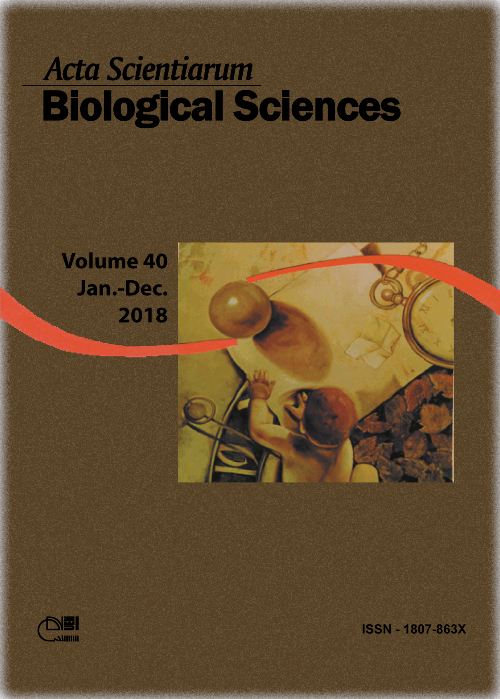<b>Soil nutrient content and plant phytosociology in agroforestry systems of the Rio de Janeiro State highlands, Brazil
Abstract
This study aimed to evaluate soil fertility and the horizontal structure of three demonstration units of Agroforestry Systems (ASs), Sapucaia, RJ, Brazil. Twenty-four plots (25 m2) were delineated in each AS. Soil fertility was evaluated through pH, organic carbon, total nitrogen, phosphorus and potassium. The estimated phytosociological parameters were frequency, density, dominance, importance value and the diversity index of Shannon. Magnesium was more pronounced in ASas with more management intensity due to the incorporation of banana biomass (AS 1 and 2). The AS 1 highlights were for banana and coffee (about 45% IV), AS 2 banana and physic nuts (about 50% IV) and AS 3 cassava and ‘fumo-bravo’ (VI=52.2%). This study suggests that diversity contributes to the maintenance of ecosystem services on a local scale, mainly for the conservation and maintenance of soil fertility, as well as to increase food security in the property. The use of physic nuts has not shown to be a favorable option as a source of energy for the farm studied. However, it can contribute to the increase of local value added. These responses support the importance of ASs for the establishment of more sustainable production models.
Downloads
DECLARATION OF ORIGINALITY AND COPYRIGHTS
I Declare that current article is original and has not been submitted for publication, in part or in whole, to any other national or international journal.
The copyrights belong exclusively to the authors. Published content is licensed under Creative Commons Attribution 4.0 (CC BY 4.0) guidelines, which allows sharing (copy and distribution of the material in any medium or format) and adaptation (remix, transform, and build upon the material) for any purpose, even commercially, under the terms of attribution.
Read this link for further information on how to use CC BY 4.0 properly.












1.png)




3.png)













